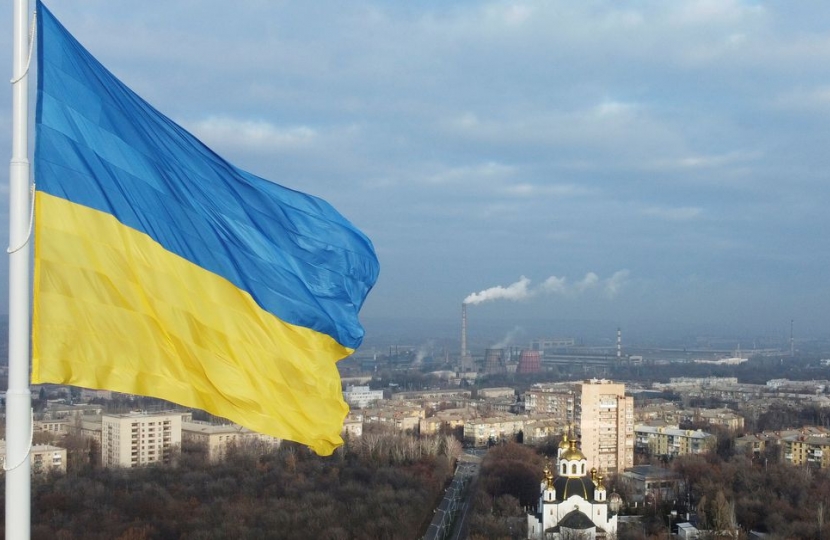
The situation in Ukraine should concern us all. Last week I attended a session in parliament with the Ukrainian Ambassador to the UK. He set out powerfully what his country is experiencing around its borders; why it is happening; and what will happen if the country is attacked.
We were all impressed with the bravery he showed; his country doesn’t want to be in the position it finds itself in and does not want a conflict, but it is ready to fight back if it is forced into one.
Should one start, it will have implications for all of us, not just because it will be unprovoked aggression on European soil that could endanger the security of Europe, but because of the knock-on effects. To give just one example: Ukraine is a key grain supplier for large parts of Africa and Asia and disruption to this production could lead to famine in countries currently relying on these supplies.
If you haven’t yet, it is worth reading the article on the situation in Ukraine by the Secretary of State for Defence, Ben Wallace, published on the 17th January on the www.gov.uk website. While most people in this country are clear that Russia is the aggressor, the Kremlin seeks to suggest it is NATO that poses the threat. As Ben sets out clearly in the article, NATO is a defensive alliance, underpinned by Article 5, which requires its members to support a member coming under attack. It has not, contrary to what is said by Russia, expanded into the borders of Soviet states but allowed countries that have requested they join to do so. Only 5/30 NATO countries share a border with the Russian Federation, covering only 1/16th of its borders.
He goes on to make clear that no country is trying to rule Russia; that Ukraine has been separate to Russia for much more of its history than it has been part of its empire; and that if a conflict takes place it will be due to the actions of Russia and not those of NATO.
In this period, we have seen the UK supply considerable support to Ukraine. Indeed, since 2015, the UK has been providing training and capacity-building for the Ukrainian armed forces through Operation Orbital which, together with maritime training, has to date trained over 21,000 military personnel. Very recently we have provided defensive anti-armour weaponry and further training personnel and we are toughening and expanding our sanctions regime to target key actors. We’re also leading other countries to take a stronger line too.
Everyone hopes war can be avoided, but we should be proud of the role this country is playing to support Ukraine to defend itself.
